As a true lover of vintage watches, hearing about a re-edition always brings mixed feelings. Obviously, it is amazing to witness an homage to some beloved classics, and get a watch that might not have the relative frailty of the original. But at the same time, there is often an uncomfortable feeling of incomplete reproduction of the original experience; for instance, the artificial tint of faux patina can never match the actual work of time on the lume. In their freshness, neo-vintage watches can also be perceived as too clinical, with their brand new body and lack of any signs of use. It is with these thoughts in mind that I received the Longines Legend Diver and decided to give it a Week On The Wrist. And so I did, but with a twist: I wished to go beyond the superficial question of resemblance with the vintage model, and make this Longines face all the roughness it was engineered to withstand. Therefore, I wore it for seven full days at sea, where it got its fair share of salt water and sun – with a small group of friends, sailing in the Caribbean.
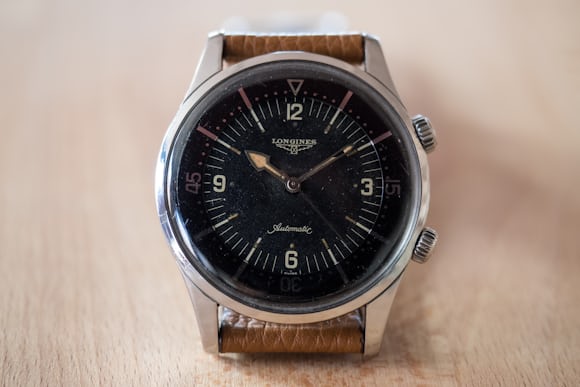
Before diving into the actual feeling of wearing the watch, let’s understand the roots of “my” model, the Longines Legend Diver reference L3-674-4, also known as the “LLD” among its numerous enthusiasts. It all started in the late 1950s with the Longines Nautilus Skin Diver. The name is pretty self-explanatory, and shows that Longines was already tackling the rapidly expanding market for dive watches. They quickly doubled down in the early 1960s with the release of a bigger dive watch – the reference 7042 pictured above. Much like the Universal Geneve Polerouter Sub, this watch was built according to the Super Compressor principle, a patent held by the casemaker Ervin Piquerez. The case relied on the increased pressure under water, to further seal the case back and guarantee its water resistance. Several companies jumped on this clever mechanism, which explains why you can find the characteristic cross-hatched crowns typical of Super Compressor cases on many different vintage pieces.
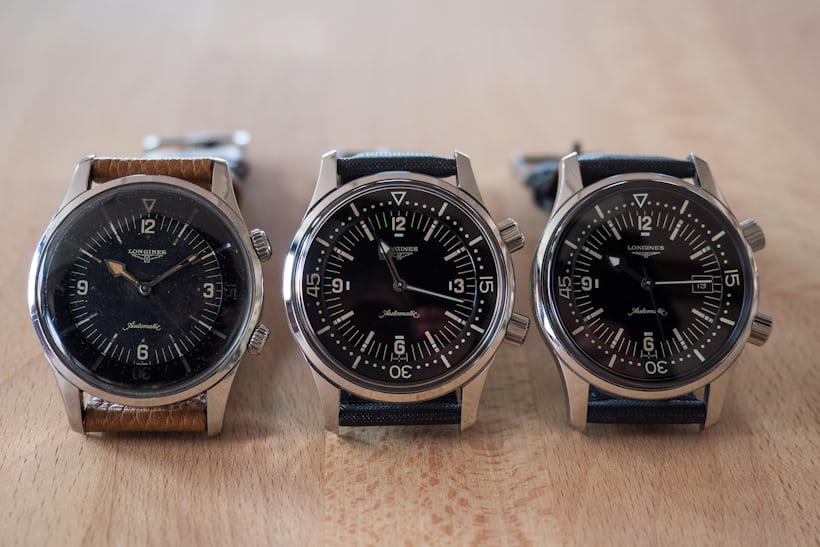
The origin of the Legend Diver is clear: the reference 7042 is essentially its inspiration, except for the handset, which is borrowed from reference 7594, from the late 1960s. The Legend Diver's 42 mm case, case-back engraving, and two hatched crowns are more than reminiscent of its ancestors, the references 7042, 7150, 7494, and 7594. In a small concession to modernity, a date window has been added (although the first series of the modern Legend Diver did not carry this indication). Note that both modern versions went for more secure screw-down crowns, versus non-screwed down crowns of the original model.
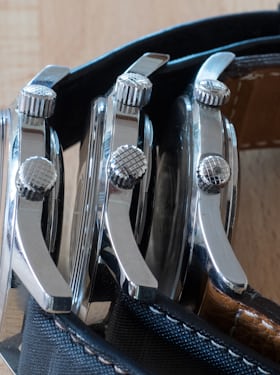
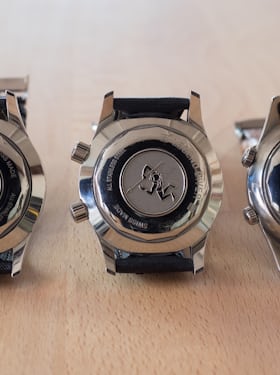
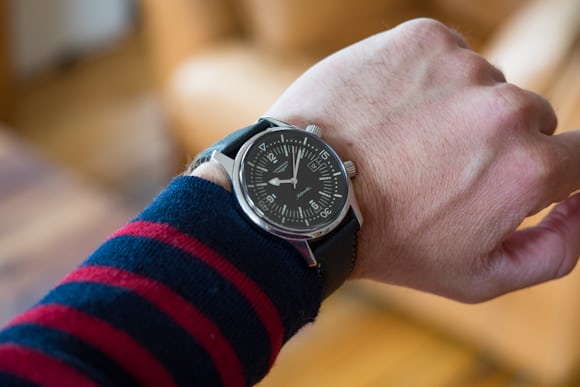
Now that the historical bases are covered, we can focus on how the Legend Diver actually feels on the wrist. When I first strapped on the LLD, its 42 mm size hit me. After all, I am more used to wearing 35 mm-ish dress watches, so this was a considerable jump. Yet, I quickly got used to it, and after a couple of hours did not think twice about it. And this might also be explained by another factor: visually, the dial is in line with my vintage inclinations, as the inner bezel takes up a good chunk of the case. The lugs are also downward angled, so they wrap nicely around the wrist. The provided strap might not be the prettiest, but it is highly functional as it copes well with underwater use while looking less overtly technical than some possible alternatives.
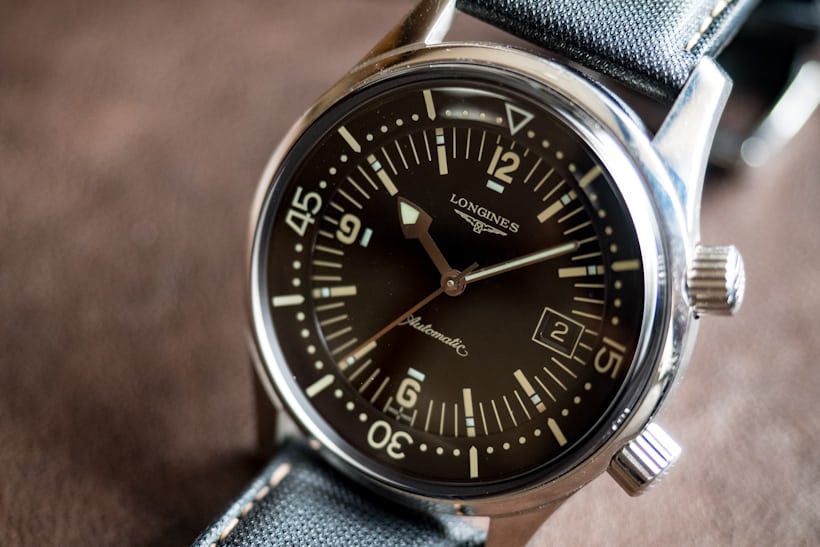
I did not open the watch, so I can't comment on the automatic movement ETA 2824-2 aesthetically, but it reliably did the job through the week, and – bonus point – comes with a quickset date. This is the kind of small detail that fully makes sense when you wear a watch in rotation, and want to spare yourself some tedious crown-turning to set the date. I found myself often turning the watch around to look at the engraved diver, a very neat feature of the watch. Not being a diver myself, I could not test the 300 meter water resistance to its limit, but that said the watch was perfectly fine with the swimming, shallow scuba diving, and occasional jumping into the sea, which is what I assume 99.99% of its potential owners would demand of it.
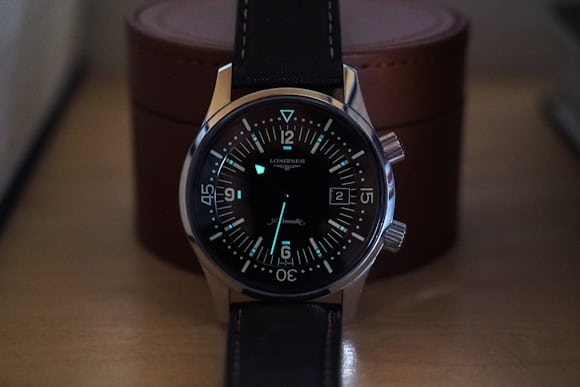
I was really impressed with the legibility of the dial, which is of course a compliment to the original model. There is no possible confusion between the hands, and they pop effectively against the black glossy dial. The lume is reasonably strong, although far from the celebrated glaring shine of Seiko divers, which still hold the title on that front. The lumed triangle on the bezel is also a very smart feature, as I found myself often referring back to it. While an inner rotating bezel makes total sense for timing a dive (much like the outside bezel of a Rolex Submariner), it also proves highly handy in everyday life, functioning like a minute chronograph and allowing to get nicely cooked eggs – a mundane task that is one of rare occasions when you really need a chronograph, if you are not a racing driver from the 1960s.
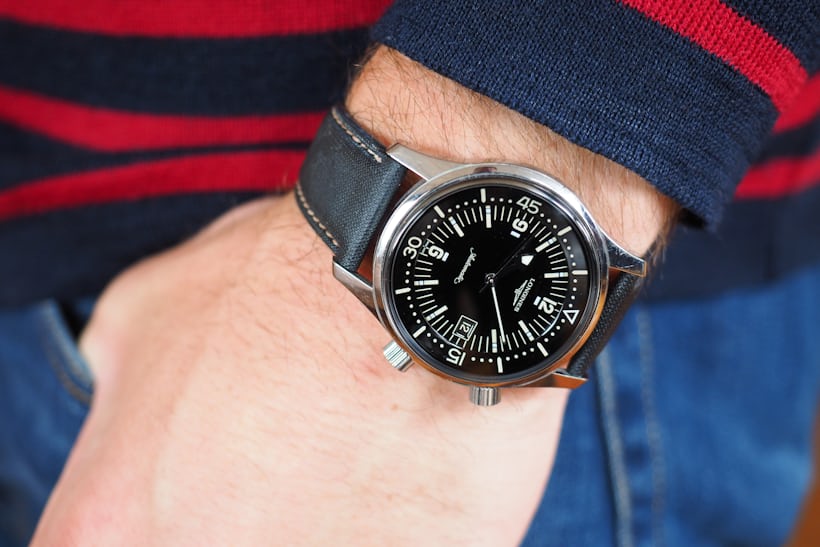
After seven days, the Legend Diver made total sense on my wrist, and I wished my ownership – and the cruise I was on – could last longer. Like many Longines, this model is a true value proposition, retailing below $2,500. At exactly $2,300 it is hard to find any competition, except maybe the Oris Divers Sixty Five that we reviewed here; both the Nomos Ahoi and the Tudor Pelagos sell for almost double that price point.
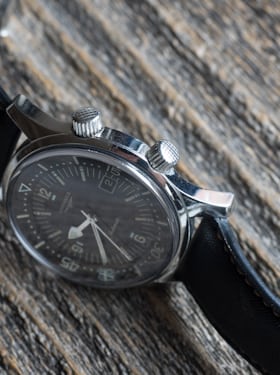
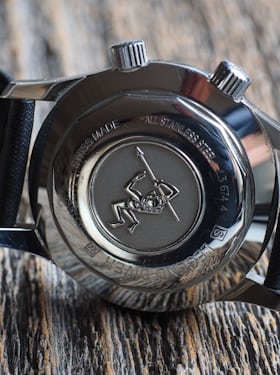
Price considerations aside, the Legend Diver proved an outstanding companion at sea, and a great everyday watch on firm ground, proving that good things can be done with old recipes. And yes, the tinted Super Luminova will never replace the charming patina of vintage lume, but but I had no hesitation in taking the Longines Legend Diver into the water, where I would have never ever brought the vintage model.
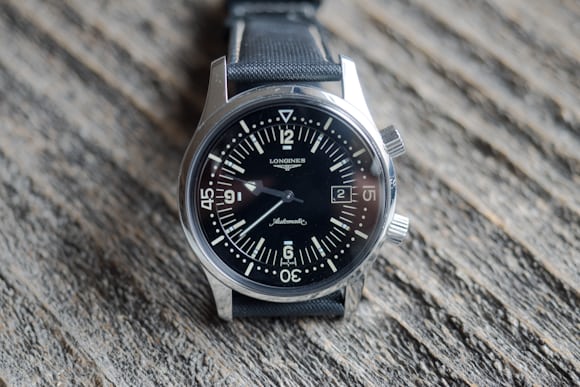
Note: Thanks to the dealer Vesper & Co. for providing the two other examples of this diver; the vintage one can be found there.
No comments:
Post a Comment